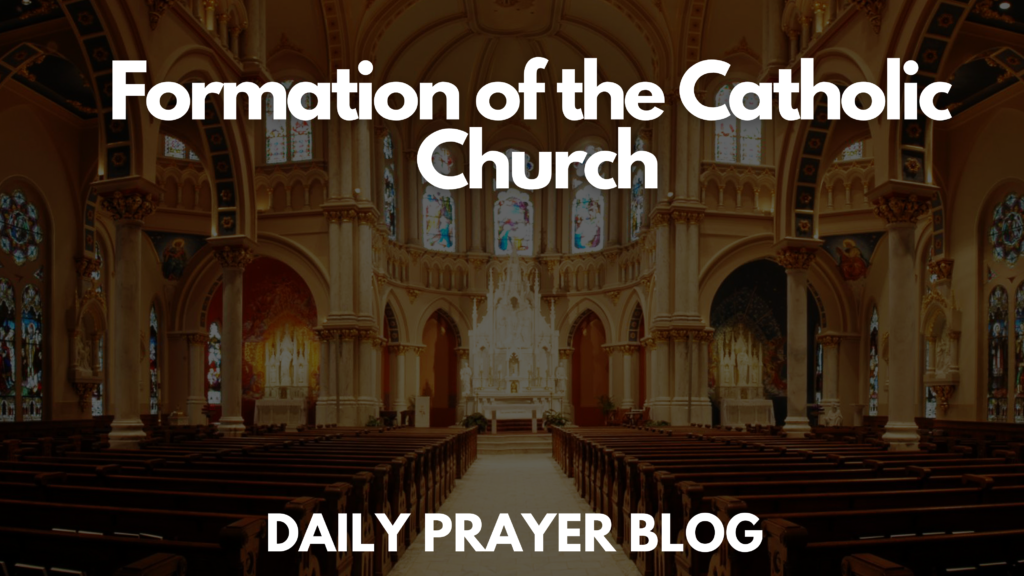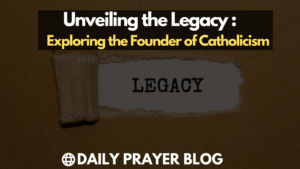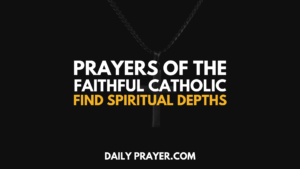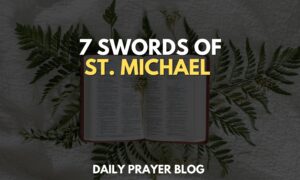At its heart lies a founder whose teachings and actions have left an indelible mark on the world: the founder of Catholicism. In this article, we will embark on a journey to delve into the life, teachings, and enduring impact of the visionary figure who laid the foundation of this venerable faith.
The emergence of religious movements has significantly shaped the course of human history. Among these, Catholicism stands as one of the most influential and widely practiced faiths across the globe.
Catholicism, one of the oldest and most widespread Christian denominations, traces its roots back to its enigmatic founder. The story of this figure begins with a profound spiritual calling that would shape the destiny of countless individuals seeking a deeper connection with the divine.
Early Life and Transformation
A Humble Beginning
The founder of Catholicism, born into modest surroundings, led a life that exemplified humility and simplicity. These early years would set the stage for a transformative journey that would impact the spiritual landscape of the world.
The Call to Faith
At a pivotal moment, the founder experienced a profound spiritual revelation that ignited a burning passion for faith. This pivotal event marked the start of a spiritual odyssey that would lead to the founding of a global faith community.
The Path of Spiritual Awakening
The founder’s journey took them through periods of introspection and self-discovery, culminating in a heightened awareness of the divine presence. These personal revelations would lay the groundwork for the profound teachings that would follow.
Foundational Teachings of Catholicism
The Principles of Love and Compassion
Central to the founder’s teachings were the principles of love and compassion. These values became the cornerstone of Catholicism, emphasizing the importance of empathy and care for fellow beings.
The Sacraments: Pathways to Divinity
An integral aspect of Catholicism, the sacraments were established by the founder as sacred rituals that facilitated a deeper connection to the divine. Each sacrament held a unique significance in the spiritual journey of a believer.
Authority and Hierarchy within the Church
The founder established a structured hierarchy within the faith community, designating authority to certain individuals to ensure the continuity and coherence of the teachings. This hierarchy would evolve into the modern framework of the Catholic Church.
Spreading the Divine Message
Journeys and Evangelization Efforts
The founder embarked on journeys far and wide, spreading the message of faith and salvation. These travels were instrumental in reaching diverse communities and fostering a sense of unity among believers.
Challenges and Opposition Faced
The path to establishing Catholicism was not without obstacles. The founder encountered resistance and opposition, both from within and outside the emerging faith. These challenges tested the resilience of the nascent community.
Formation of the Catholic Church

Community Building and Congregations
Realizing the need for a united community, the founder emphasized the importance of congregations. These gatherings provided a space for believers to come together, strengthen their bonds, and collectively engage in worship.
Rituals and Traditions: Solidifying the Faith
Rituals and traditions played a vital role in solidifying the tenets of Catholicism. The founder introduced practices that upheld the faith’s core values and allowed believers to express their devotion.
The Enduring Influence
Catholicism’s Impact on Culture and Art
The founder’s influence extended beyond the realm of spirituality, permeating art, literature, and culture. The cathedrals, paintings, and sculptures that emerged under the banner of Catholicism remain a testament to its enduring impact.
Social and Humanitarian Contributions
Catholicism’s teachings of compassion and charity inspired numerous charitable initiatives and humanitarian efforts. Faith became a driving force in addressing societal issues and advocating for the marginalized.
Legacy and Continuation
Papal Succession: Carrying the Torch Forward
Following the founder’s passing, a legacy was established through the continuity of leadership within the Catholic Church. The role of the Pope became a symbol of authority and spiritual guidance, ensuring the preservation of the founder’s teachings.
Adaptations and Modern Dynamics of Catholicism
Over the centuries, Catholicism evolved to meet the changing needs of society. While the core teachings remained steadfast, adaptations were made to address contemporary challenges and engage with a diverse global community.
Conclusion: A Lasting Spiritual Heritage
The founder of Catholicism’s profound teachings and transformative journey continues to shape the lives of millions. Through trials and triumphs, this visionary figure forged a path that resonates through generations, offering solace, guidance, and a profound connection to the divine.
FAQs
- Who was the founder of Catholicism? The founder of Catholicism was a visionary individual whose teachings laid the foundation for the faith’s principles and practices.
- What are the sacraments in Catholicism? Sacraments in Catholicism are sacred rituals established by the founder, each holding a unique spiritual significance.
- How did Catholicism influence art and culture? Catholicism’s influence is evident in the art, architecture, and culture that emerged under its banner, reflecting its spiritual depth.
- What role does the Pope play in Catholicism? The Pope, as the spiritual leader of the Catholic Church, continues the founder’s legacy by providing guidance and authority.
- How has Catholicism evolved over time? While preserving its core teachings, Catholicism has adapted to modern dynamics, addressing contemporary challenges and embracing diversity.



